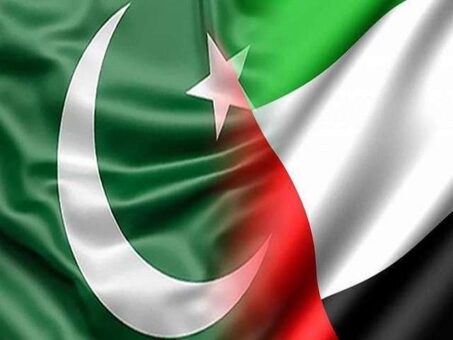KARACHI: Pakistan to review the existing prices of petroleum products on August 15, 2022 for next fortnight amid falling international oil prices and massive recovery in rupee value.
The government may reduce the prices of petroleum products considering the latest crude oil prices in the international markets and sharp recovery in local currency against the US dollar.
READ MORE: New petroleum prices in Pakistan from August 1, 2022
Previously, the government reviewed the prices of petroleum products on July 31, 2022. As per the notification issued by the finance ministry, the government revised the following prices effective from August 01, 2022:
The prices of petrol have decreased by Rs3.05 per liter to Rs227.19 from Rs230.24.
The rate of high speed diesel has been increased by Rs8.95 per liter to Rs244.95 from Rs236.
READ MORE: New petroleum prices in Pakistan from July 15, 2022
The rate of kerosene oil has been increased by Rs4.62 per liter to Rs201.07 from Rs196.45.
Similarly, the rate of light speed diesel has been decreased by 12 paisas per liter to Rs191.32 from Rs191.44.
Some good developments have been seen since the last amendment in prices of petroleum products.
The rupee continued the gain for the seventh straight session after falling to historic low. The local unit witnessed record low at Rs239.94 against the dollar on July 28, 2022. However, since then the rupee is continuously gaining to the dollar. The local currency gained about Rs18.75 or 7.51 per cent during the past seven trading days till August 10, 2022.
READ MORE: New prices of petroleum products in Pakistan from July 01, 2022
Pakistan is a net importer of petroleum products so huge foreign exchange is required for paying against foreign purchases and meeting local demand.
The country has spent a staggering amount of $23.32 billion for the import of petroleum group during fiscal year 2021/2022 as compared with $11.36 billion in preceding year, showing a growth of 105 per cent. The import of finished products recorded an increase of 134 per cent to $12.07 billion during the fiscal year 2021/2022 as compared with $5.16 billion in the preceding fiscal year.
READ MORE: New petroleum prices in Pakistan from June 16, 2022
The benchmark Brent crude is below $100 dollars in the international market. Brent crude futures were at $97.40 per barrel in New York trade on August 10, 2022.
The present government had started increasing the petroleum prices on May 26, 2022 when the benchmark Brent Oil was at $112 per barrel.
Considering the price slump of international oil, the government had reduced the prices of petroleum products from July 15, 2022. However experts believed it was a political decision as the government had to increase petroleum levy and apply sales tax.
READ MORE: New petroleum prices in Pakistan from June 03, 2022
The previous government of PTI had kept both the petroleum levy and sales tax at zero in order to provide relief to the masses. The PTI government also provided a huge subsidy on prices of petroleum products in order to lower the rates and provide relief to the masses.
However, former Prime Minister Imran Khan was removed through a vote of no-confidence motion on April 10, 2022. Since then the new coalition government led by PML-N increased the prices of petroleum products sharply on three different occasions.
READ MORE: ECC approves petroleum dealer margin at Rs7/liter
The present government in the budget estimated to collect Rs855 billion as petroleum levy during the fiscal year 2022/2023. As this fiscal year is starting from July 01, 2022, it is likely that the government will opt to impose the levy from this date.







